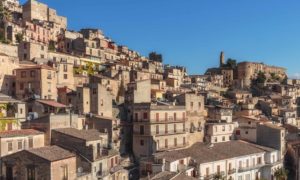Would you like to study a master’s in the best European universities with zero tuition fees? If the answer is yes, today is your lucky day!
The calls for applicants for the Erasmus Mundus Master’s programmes are open now and will stay open within the next three to four months.
If you have never heard about Erasmus Mundus and want a quick and simple guide to understand the basics, you’ve come to the right place.
What is Erasmus Mundus?
Not to be confused with the Erasmus+ mobility programmes for bachelor’s degrees and internships, Erasmus Mundus is a programme funded by the European Union, created in 2004 with the goal of promoting mobility of students with a focus on improving the levels of quality, cooperation, equality and inclusion in education. It includes 170 master’s programmes in areas like arts, science, technology, humanities, social and life sciences.
All of these master’s are open to applicants from all nationalities, so you don’t need to be a European citizen to apply. Another exciting fact is that each master’s offers a unique mobility path, your degree will be completed in two or three universities giving you either a joint master’s degree or multiple degrees once you finish your studies. This means that you will spend most semesters living in different cities and attending different universities in the world because, even though this is a European project, there are partner universities in countries like Brazil, Japan, Egypt and many more.
Does it sound too good to be true?
Well, the not-so-good news is that these are highly competitive programmes and getting in is not easy because of the two reasons we just mentioned above but also because when applying for an Erasmus Mundus Master’s you can request the Erasmus Mundus scholarship. If you are chosen, you won’t have to pay any tuition fees for the whole Master’s programme and you will be paid 1,400 euros monthly for your personal expenses.
So, you won’t have to worry about working and can dedicate completely to your studies.
How can I apply?
The application requirements are different for each master’s program, while some of them only require a letter of intent and your bachelor’s degree diploma, some others may also require letters of recommendation, previous work experience or a research project draft. There are also some programmes that require you to be fluent in three or at least two different languages while others are fully in English.
If you are interested in applying you should check the Erasmus Mundus catalogue because every programme is unique.
When can I apply?
The applications for the programmes starting in fall 2024 are either open now, or will open within the next couple of weeks. However, you need to check the website of the programme or programmes you would like to apply to because each application process is different. Most programmes accept students that are in the last year of their bachelor’s but some of them require the diploma at the moment of application.
The Erasmus Mundus programme is a wonderful option if you want to get a master’s degree and study in the best European universities. Furthermore, people who graduate from these programmes are highly employable given the fact that the areas covered by these master’s are very relevant nowadays (sustainability, data protection, genetics, artificial intelligence and gender studies are only some of them). Also, the universities that participate in this programme have a great reputation, and employers will always value the fact that you experienced life in different countries and cultures.
Now that you have all the information about the Erasmus Mundus Master’s Degrees it is time to start preparing your application.
Good luck!
–––––––––––
See more here in Dispatches’ archives about schools in Europe.
Mónica da Silva is half-Venezuelan, half Portuguese and has lived in Venezuela, Portugal, Spain and Germany. She has studies linguistics and has a Bachelor’s Degree in European Studies. Besides contributing to Dispatches, she works remotely as an English teacher, which allows her to be on the move as often as she wants.














